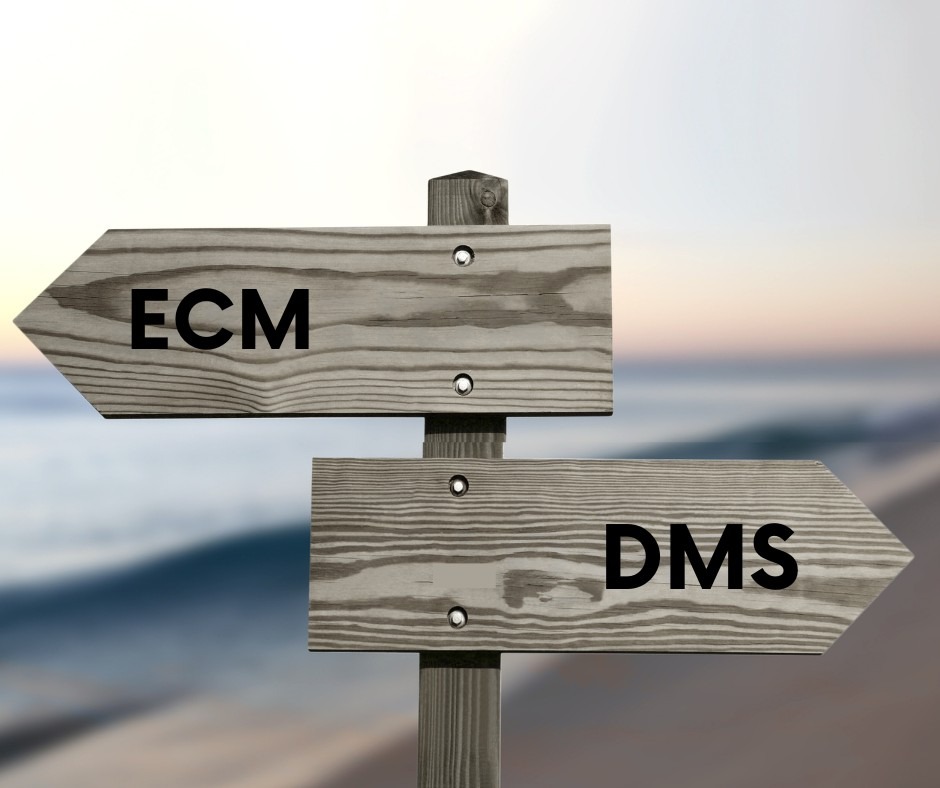Unraveling the Key Differences!
In the dynamic landscape of digital organization and information management, the choice between Enterprise Content Management (ECM) and Document Management Systems (DMS) can significantly impact how businesses handle their data. Understanding the distinctions between DMS vs ECM is crucial for organizations seeking tailored solutions to their information management needs.
At a Glance
Let’s First Introduce Our Game Changers: ECM and DMS
What Do You Mean by ECM?
What Do You Mean by DMS?
Enterprise Content Management (ECM) is like the organizational maestro for businesses. It’s a set of tools and systems that ensure all the important stuff—documents, emails, images, videos, and more—is well-arranged and easily accessible.
Picture it as a digital hub, keeping things in order behind the scenes. ECM’s role is to make sure that information is neatly stored, readily available, and, most importantly, secure. It’s the backbone that maintains a company’s digital environment and document structure.
A Document Management System (DMS) is a specialized part of Enterprise Content Management (ECM) that focuses specifically on handling documents. It’s like a tailor-made tool for keeping all your paperwork in order and easily accessible.
Think of it as your personal assistant for documents – it helps you store, organize, find, and keep track of your files effortlessly. But it’s not just about tidying up; DMS systems also make your work life easier by automating document workflows and making sure everything follows the required regulations.
Decoding: DMS vs ECM: Understanding The Difference
In the world of technology, we often come across terms that seem complicated. Two such terms are DMS and ECM. Today, we are going to break down these concepts and understand what makes them different. This guide will be easy to follow, even for a primary school student. Let’s dive in!
With the rapid growth of digital information, managing data efficiently has become more important than ever. Businesses, schools, and even individuals need systems to organize, store, and retrieve their information quickly and safely. Imagine having a huge pile of papers on your desk, with important documents mixed with less important ones. It would be a mess, right? Similarly, in the digital world, managing files and content without a proper system can lead to chaos. This is where DMS and ECM come into play. By understanding these tools, you can make better decisions about how to handle your digital information, keeping it organized and easily accessible.
DMS Vs ECM – Scope:

DMS Vs ECM – Functionality:
DMS Vs ECM – Scale:


DMS Vs ECM – Cost:
ECM VS DMS – Similarities:
- ECM and DMS can help organizations manage and organize their information.
- Both can improve efficiency and productivity by automating tasks and streamlining processes.
- They can also enhance compliance with regulatory requirements.
Differences – ECM VS DMS:
- ECM manages a wider range of content, including structured and unstructured documents, images, videos, and web content, while DMS focuses primarily on structured documents.
- While ECM helps to store and process workflow and content documentation inside an organization, DMS’s primary functions within it are the storage, management, and tracking of electronic documents. DMS software is used to manage files inside a company.
- ECM offers a broader range of features, including workflow automation, content distribution, and collaboration, while DMS focuses on document storage, retrieval, and management.
- ECM is typically suited for larger enterprises with complex information needs, while DMS is more appropriate for smaller businesses with more straightforward document management requirements.
- ECM is generally more expensive than DMS due to its broader scope and more advanced features.
ECM VS DMS – Applications:
Which Solution is Right for You?
The answer lies in your specific business needs. For streamlined management of a modest number of structured documents, a DMS may suffice. However, if you deal with a substantial volume of diverse content, or if you seek automation and improved collaboration, an ECM could be the strategic choice. Understanding the distinctions between ECM and DMS empowers businesses to make informed decisions, ensuring that their chosen solution aligns seamlessly with their unique requirements.
Want to Learn More? Check Out Our Guide on How to Choose the Perfect EDMS!






